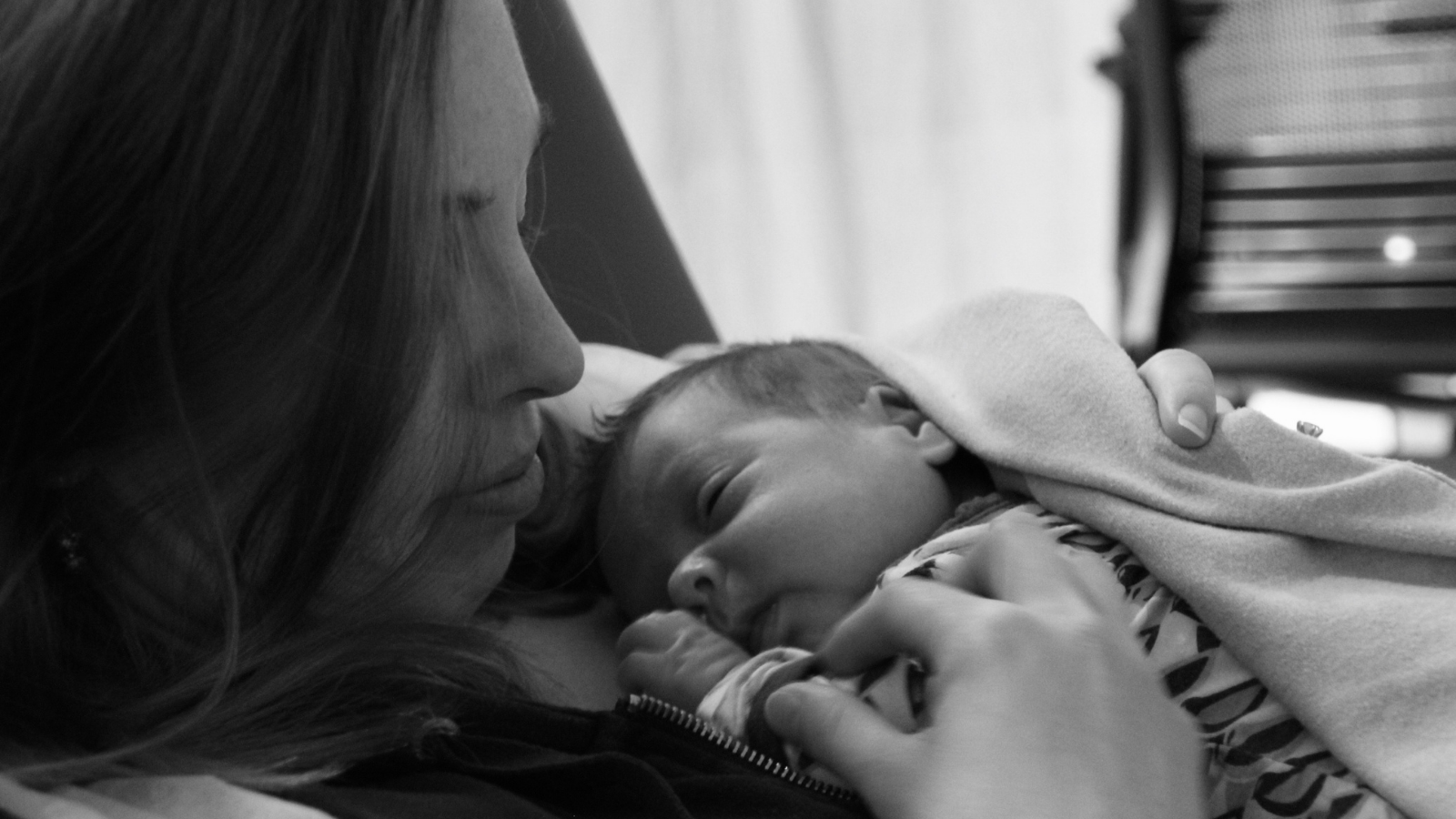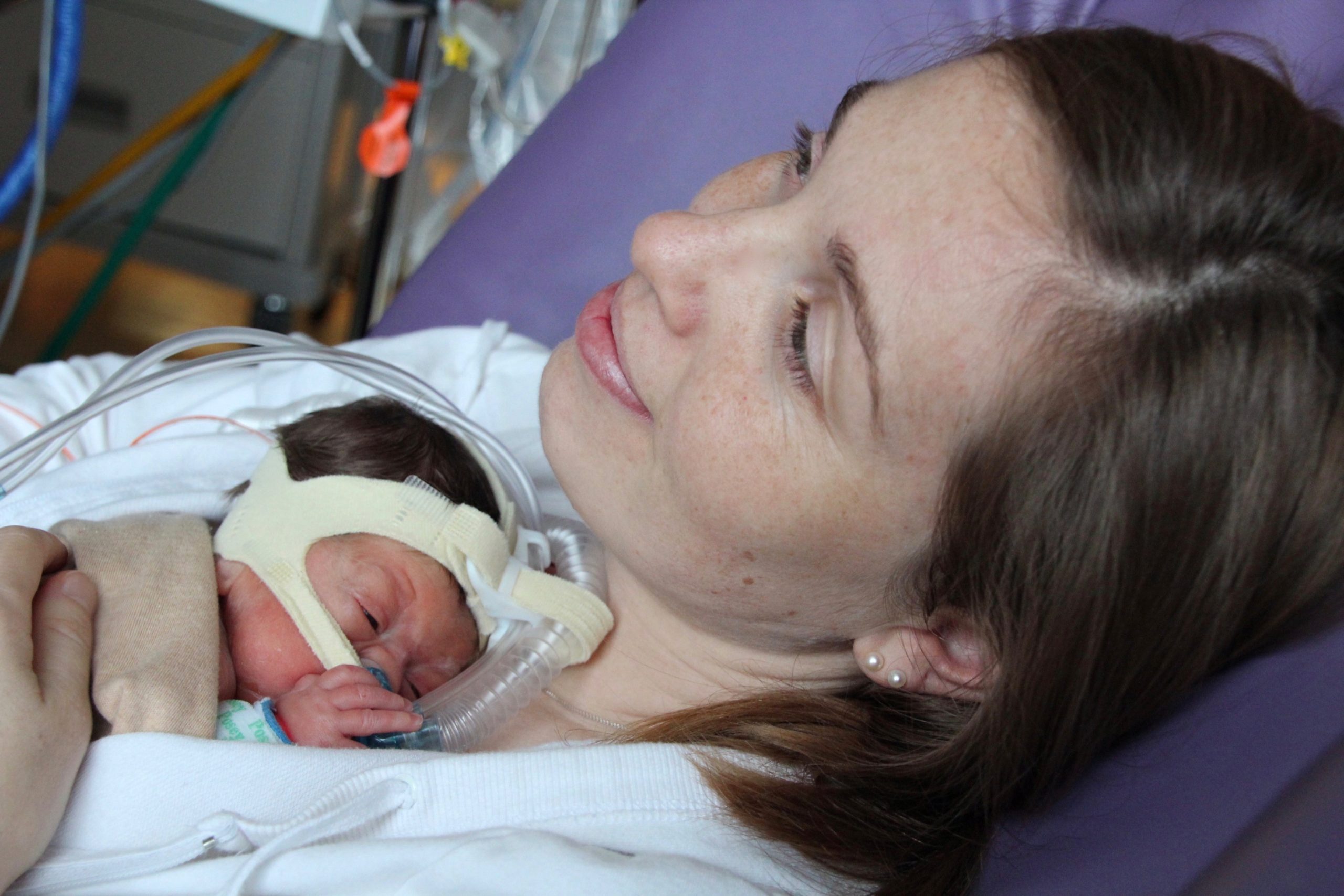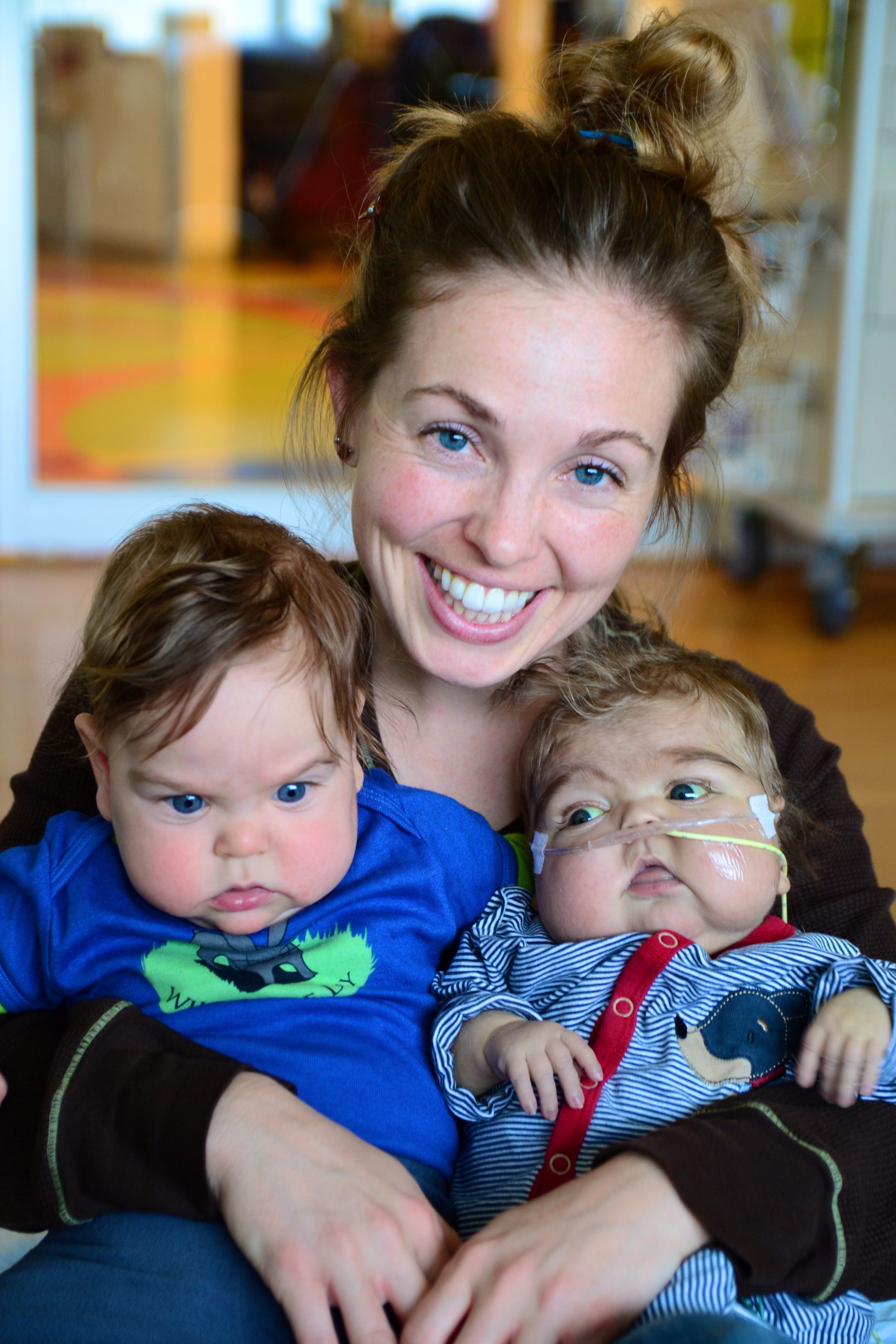
by Jennifer Canvasser, MSW
Founder and Executive Director of NEC Society
When my twins, Micah and Zachary, were born at 27 weeks gestation, I struggled with intense feelings of shame and guilt, on top of being unfamiliar with the NICU and how to help my babies thrive.
After my emergency c-section, I begged my nurse for a breast pump. I had never seen a breast pump, and I knew nothing about human milk for preemies. I just instinctively knew that I had to start making milk for my twins. I was told I had to wait until I was in my own hospital room.

Jennifer Canvasser and Micah. Photo courtesy Jennifer Canvasser.
Hours later, I began pumping every two hours around the clock. After not producing a single drop of milk in more than 24 hours, I was told that if my milk did not come in, my babies would receive formula.
I wanted to nurture my twins’ health and help protect their development, but I didn’t know how. I coped by reading and becoming more informed. Weeks into our NICU stay, I learned about pasteurized donor milk. I felt misled and betrayed because I trusted the care team to tell me what I needed to know. I was only informed of two feeding options: my milk and formula. Yet, there was a third option that no one told me about: pasteurized donor milk, which is considered the next safest option for preemies when mother’s milk is unavailable.
As I continued to read, I asked the care team if they would consider using probiotics. They replied with a short “no.” The twins never received probiotics or pasteurized donor milk. They thrived for six weeks and even doubled their birth weight. Despite weeks of progress, Micah became critically ill and was diagnosed with necrotizing enterocolitis (NEC). Micah survived and came home, but NEC complications left him with end-stage renal disease, liver disease, and short bowel syndrome. Micah died from NEC complications just before the twins’ first birthday.
Recently, the American Academy of Pediatrics released a statement not recommending probiotics for preterm infants. Yet, a mounting body of evidence demonstrates the effectiveness of probiotics for preemies, and prophylactic administration of probiotics has been shown to prevent NEC and death in preterm infants. All NICUs should disclose this information to parents. Parents should be part of the team that weighs the risks and benefits of this treatment for their child. While further study is warranted, waiting for more evidence places babies like Micah at risk of developing NEC and dying.
Moreover, many NICUs still do not provide pasteurized donor milk to infants in need, and access is even more limited in communities that have been historically marginalized. Despite the science, pasteurized donor milk and probiotics continue to be underutilized, and too often, parents are kept in the dark.

Jennifer Canvasser with Zachary & Micah. Photo courtesy Jennifer Canvasser.
Micah’s life and death demonstrate the importance of timely and open access to information. NICU parents need, want, and deserve to understand how to protect their child’s health. This includes understanding the pros and cons of pasteurized donor milk and probiotics, even when these interventions are not routinely administered in the family’s NICU.
NICUs that do not openly share information with parents are withholding information from parents. A parent’s trust in the care team is jeopardized when they gain access to information that should have been disclosed earlier. Parents question why they were not informed sooner and why other NICUs provide access to interventions that were not available or disclosed to them. Yet, clinicians often hesitate because they don’t want to overwhelm or scare families with too much information. However, what is truly overwhelming and terrifying is not being informed, and gaining access to information only when it is too late. Parents must have a voice in what is considered an acceptable risk or benefit for their child.
For preterm infants, there are uncertainties associated with many practices that have been used for years. We do not fully understand the long-term effects nor how the microbiome may be permanently altered by commonplace NICU practices such as formula feeding, the use of certain medications, exposures to plastics, and physically separating babies from their parents. Indeed, studies are needed to assess the long-term effects and outcomes of everything NICUs already do to – and withhold from – preterm infants every day.
With so much uncertainty, NICUs need to ensure families have access to information so they can serve as an informed member of their child’s care team and participate in shared decision-making. Families cannot adequately engage when information is withheld.
I will never know how the various triggers caused Micah to develop necrotizing enterocolitis. What I do know is that families are committed to doing the best they can with what they know. Families deserve to know that pasteurized donor milk and probiotics can potentially save their child’s life.
READ NEXT: EVERYTHING YOU NEED TO KNOW ABOUT HUMAN DONOR MILK IN THE NICU
LISTEN NOW: NICU EPISODE 19 – UNDERSTANDING NECROTIZING ENTEROCOLITIS
 Announcing the Hand to Hold mobile app and online community, a safe and inviting environment to connect with hand to Hold Family Support Specialists and other NICU parents to find support whenever and wherever you need it. Learn more.
Announcing the Hand to Hold mobile app and online community, a safe and inviting environment to connect with hand to Hold Family Support Specialists and other NICU parents to find support whenever and wherever you need it. Learn more.
